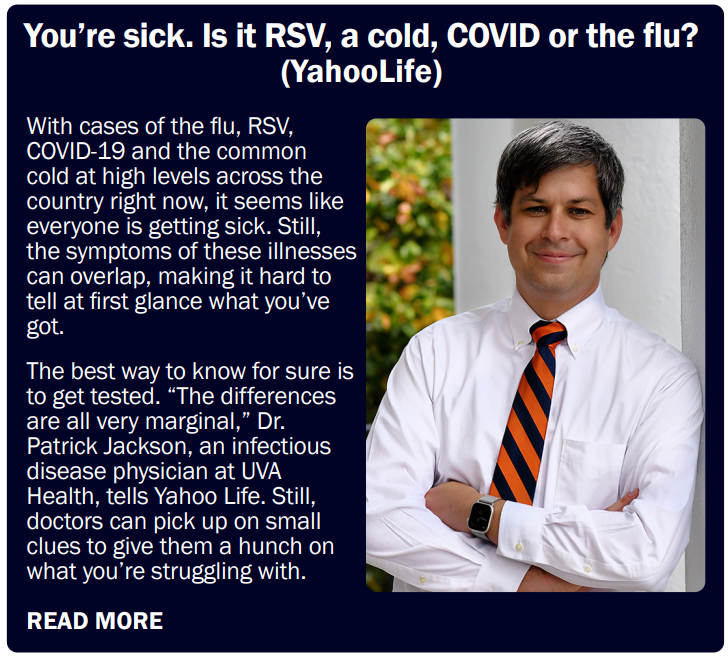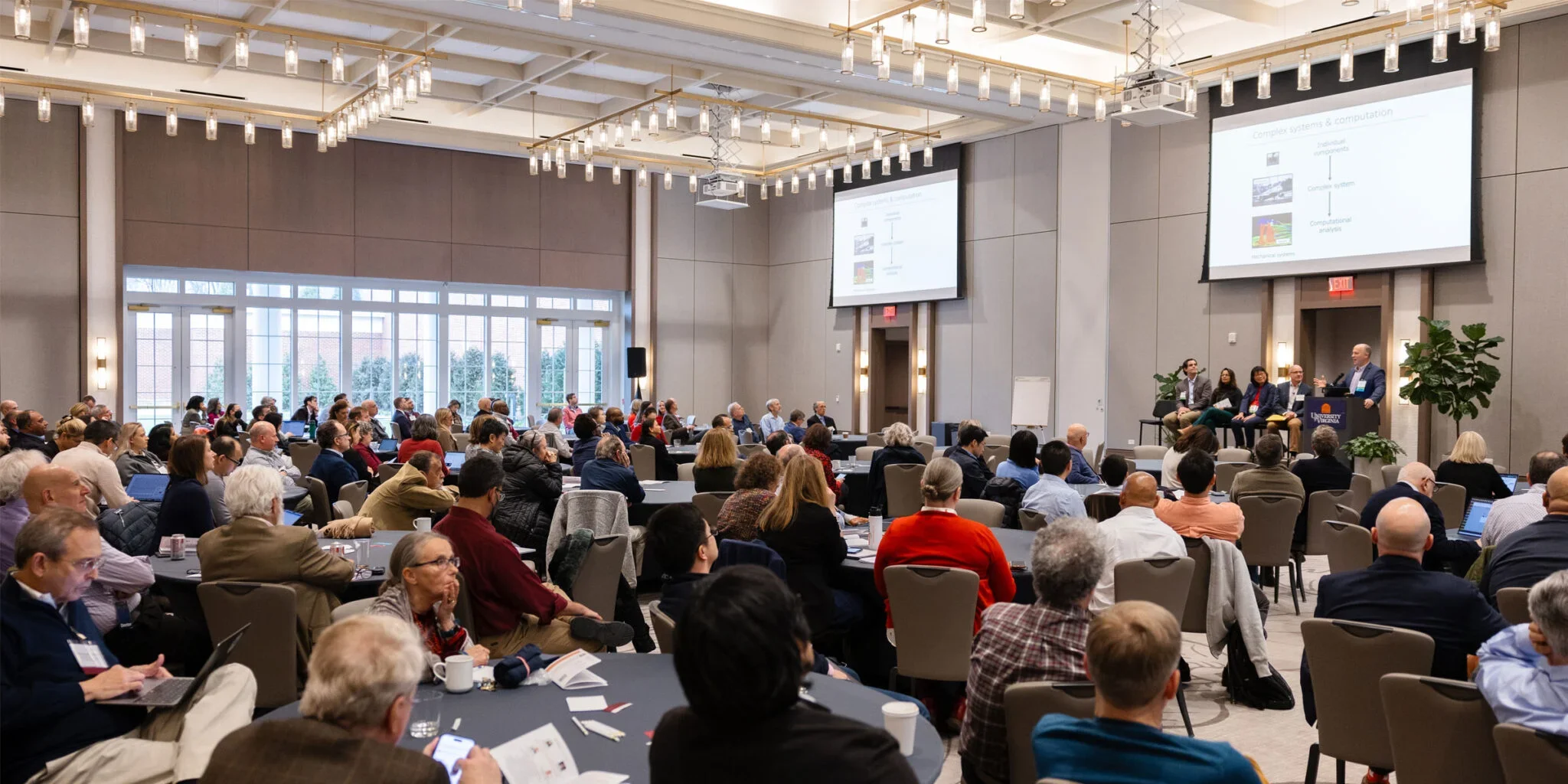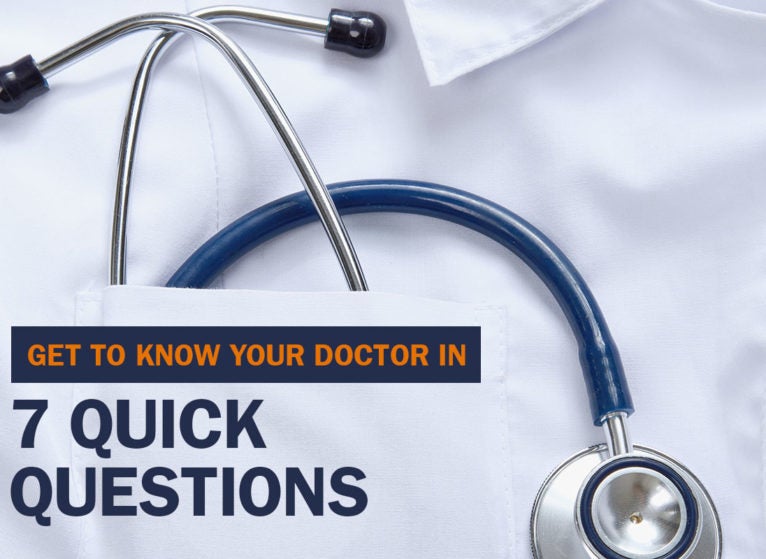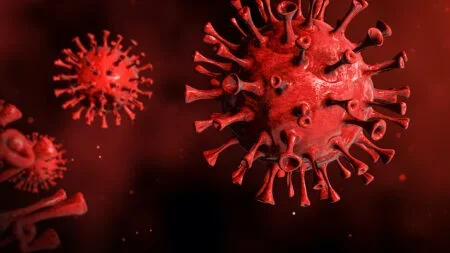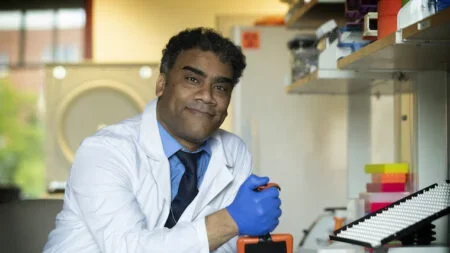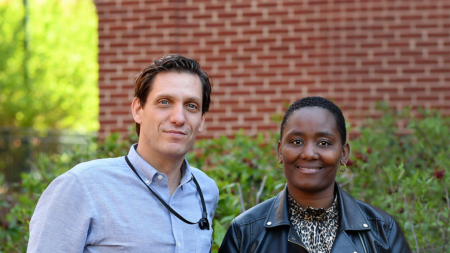Media Archive
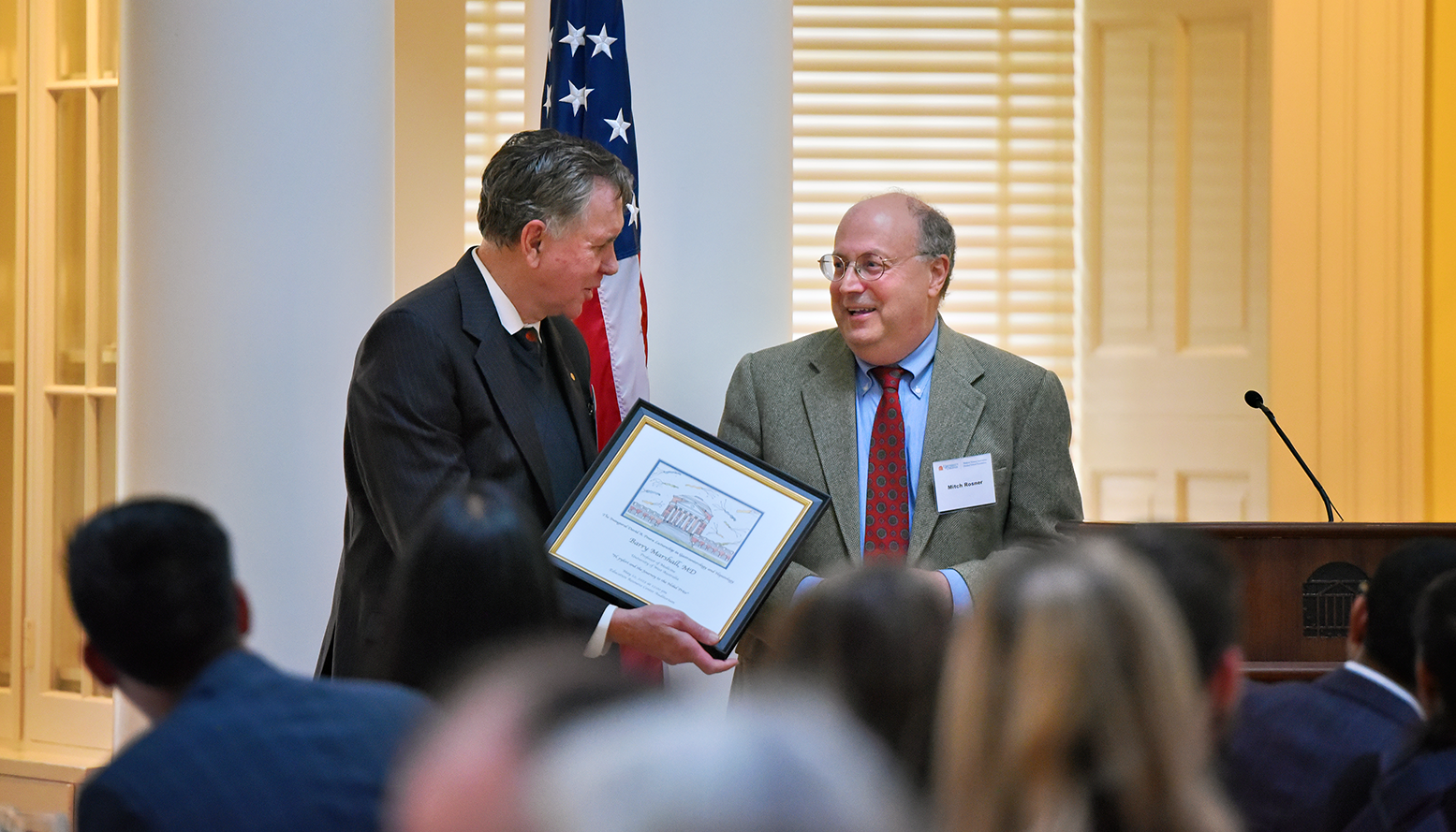 Read or watch video about UVA Department of Medicine members, their research, work, and accomplishments in this media archive.
Read or watch video about UVA Department of Medicine members, their research, work, and accomplishments in this media archive.
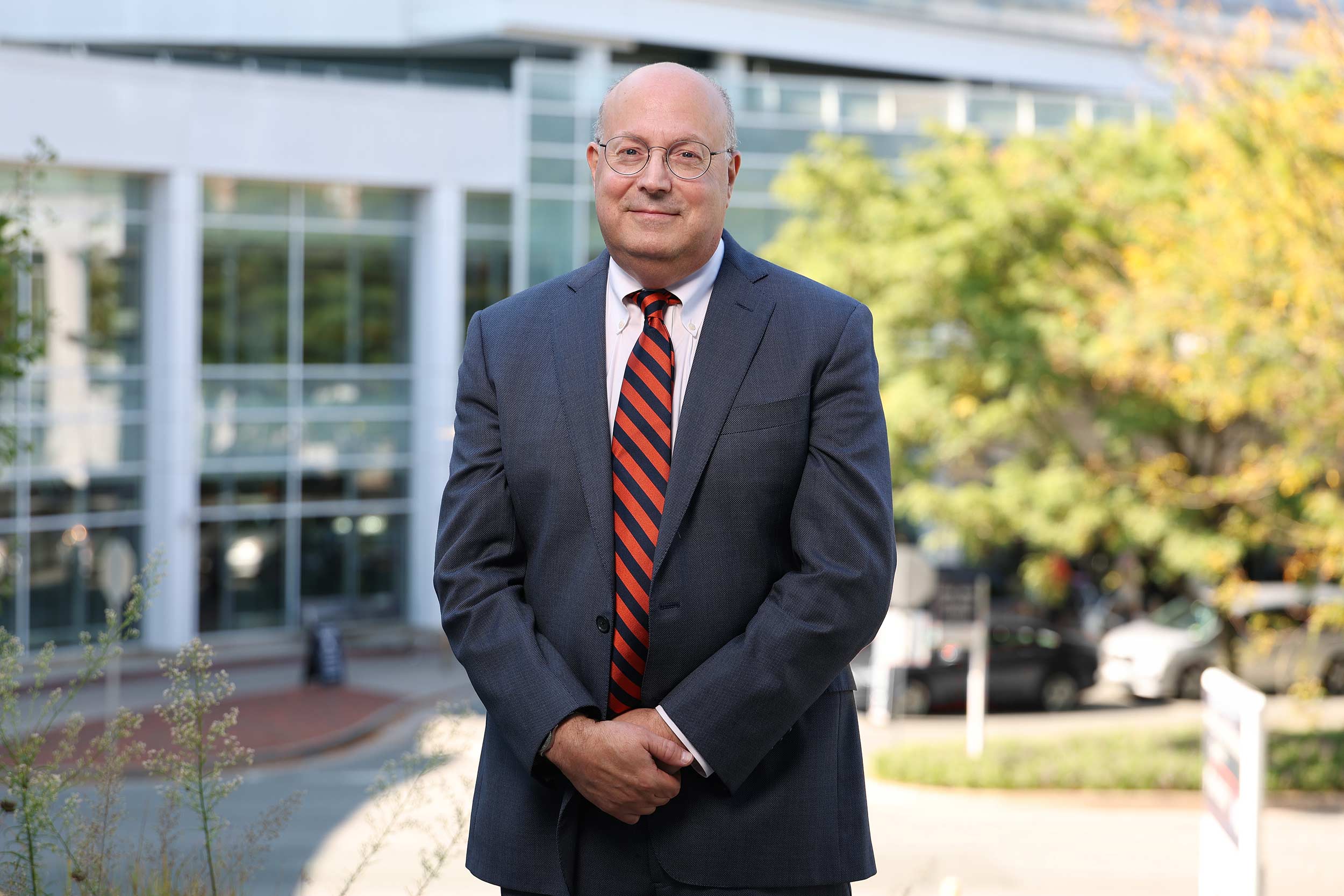 After a Board of Visitors vote Friday, that doctor, Mitchell Rosner, was officially tasked with leading UVA Health as its executive vice president and chief executive officer. The move is the capstone to Rosner’s career at UVA, which has taken him from intern to faculty to UVA Health’s top doc, serving a community where he has raised three children with that nurse, Michelle (who also has a degree from UVA).
After a Board of Visitors vote Friday, that doctor, Mitchell Rosner, was officially tasked with leading UVA Health as its executive vice president and chief executive officer. The move is the capstone to Rosner’s career at UVA, which has taken him from intern to faculty to UVA Health’s top doc, serving a community where he has raised three children with that nurse, Michelle (who also has a degree from UVA).
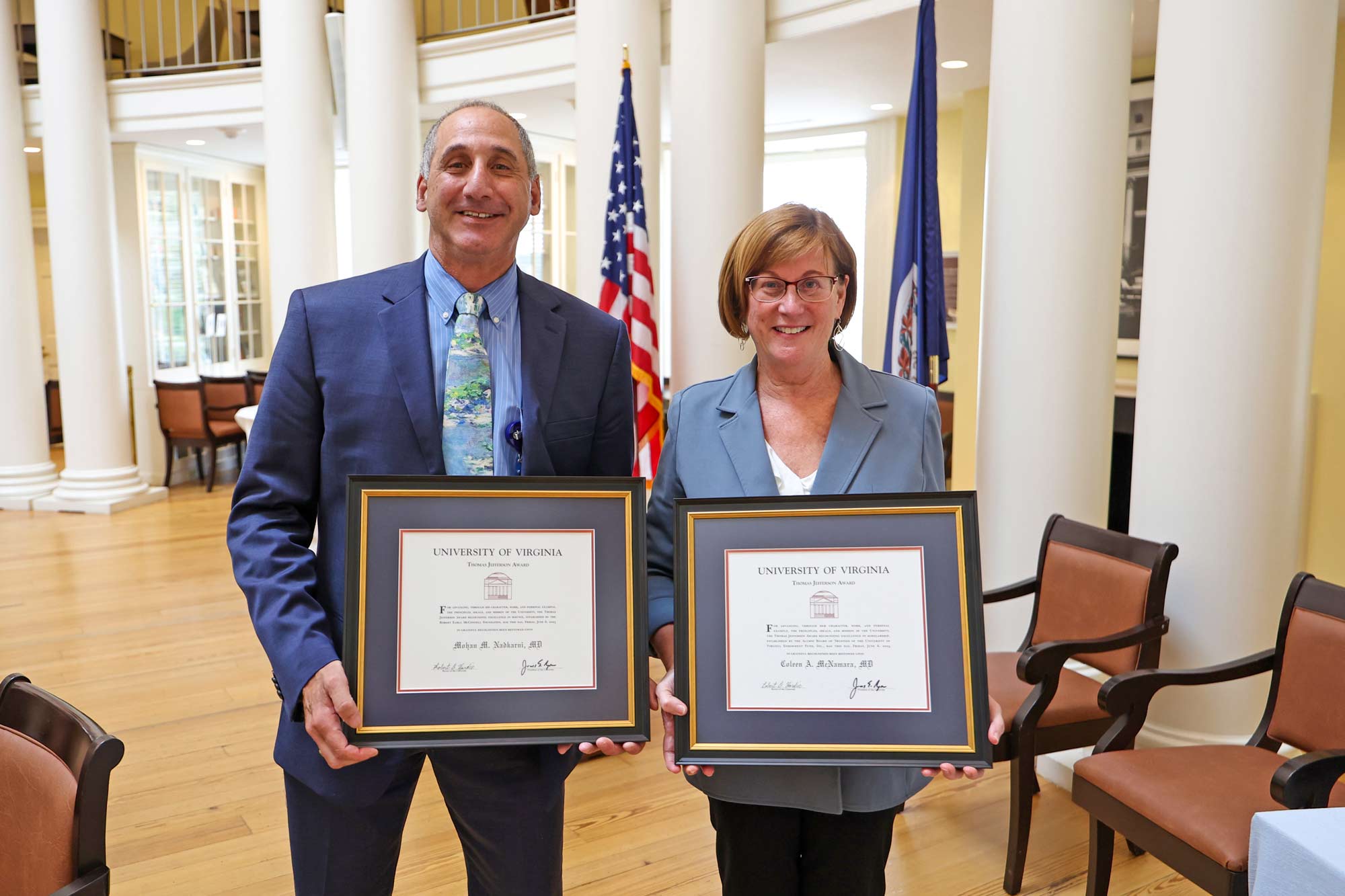 Two Department of Medicine doctors received Thomas Jefferson Awards, the highest honor bestowed upon members of the University of Virginia community.
Two Department of Medicine doctors received Thomas Jefferson Awards, the highest honor bestowed upon members of the University of Virginia community.
UVA President Jim Ryan presented Dr. Mohan M. Nadkarni with the Thomas Jefferson Award for Service, and Interim Executive Vice President and Provost Brie Gertler presented Dr. Coleen A. McNamara with the Thomas Jefferson Award for Scholarship during a Board of Visitors meeting.
The goal of our research is to develop ways in which telehealth can be a tool for all of our patients to use; that it can be a tool to decrease barriers and make it easier for our patients to access their healthcare. —Laurie Archbald-Pannone, MD, Associate Professor, Department of Medicine
 Two Department of Medicine doctors received Thomas Jefferson Awards, the highest honor bestowed upon members of the University of Virginia community.
Two Department of Medicine doctors received Thomas Jefferson Awards, the highest honor bestowed upon members of the University of Virginia community.
UVA President Jim Ryan presented Dr. Mohan M. Nadkarni with the Thomas Jefferson Award for Service and Interim Executive Vice President and Provost Brie Gertler presented Dr. Coleen A. McNamara with the Thomas Jefferson Award for Scholarship during a Board of Visitors meeting.
Chelsea Marie Braun, PhD, Associate Research Professor, Div. of Infectious Disease and International Health, studies why the parasite Cryptosporidium causes severe illness in some people.
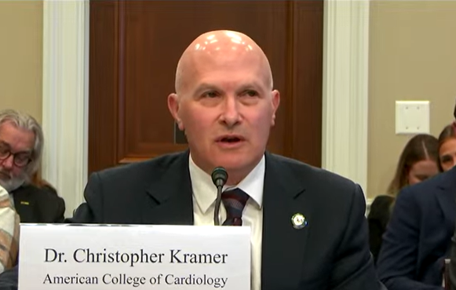
ACC President Christopher M. Kramer, MD, FACC, testified before the U.S. House Appropriations Subcommittee on Labor, Health and Human Services, Education, and Related Agencies on April 9, urging lawmakers to allocate full funding for the Cardiomyopathy Health Education, Awareness, Research, and Training in Schools (HEARTS) Act.
“I just love the joy of discovery. I love when you set up an experiment at night, you come in in the morning, you break the code, and those rare times when everything works, you know something that nobody else in the world knows, and it’s just incredibly exciting.
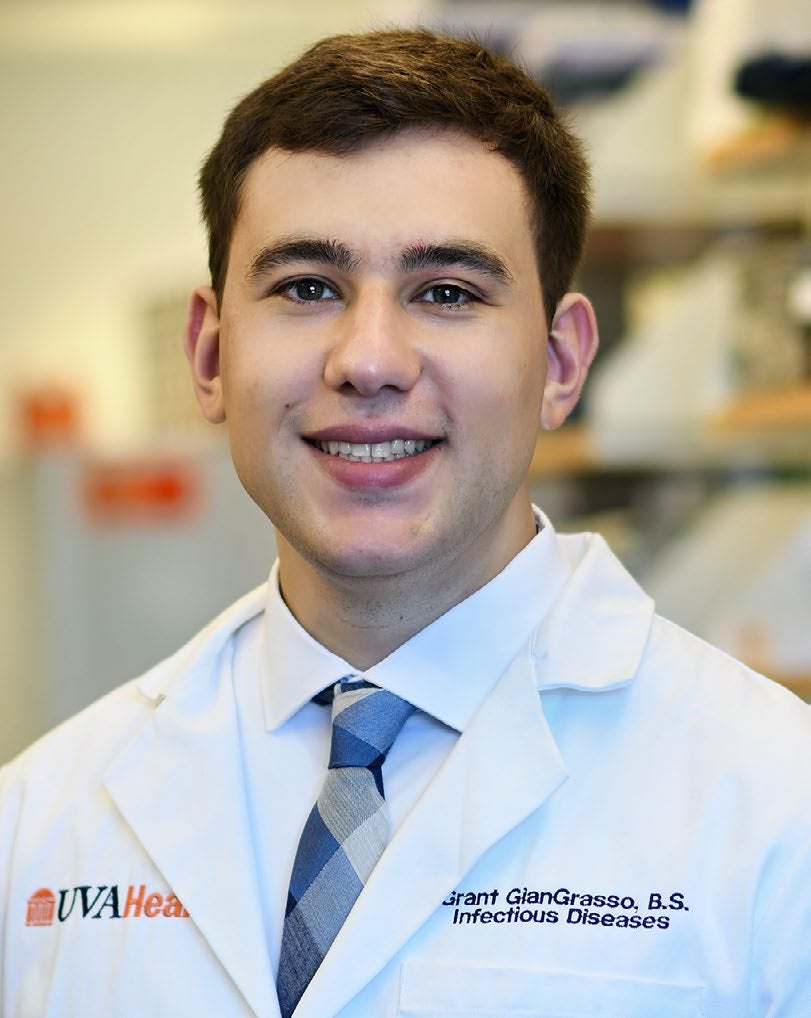 Grant GianGrasso graduated from the University in Virginia, for the second time, in 2024. As an undergraduate at UVA, GianGrasso conducted research in the lab of Chelsea Marie Braun, an
Grant GianGrasso graduated from the University in Virginia, for the second time, in 2024. As an undergraduate at UVA, GianGrasso conducted research in the lab of Chelsea Marie Braun, an
associate professor of medicine, who focuses on infectious diseases.
There he studied cryptosporidium, a diarrheal parasite affecting children, particularly in low- and middle-income countries.
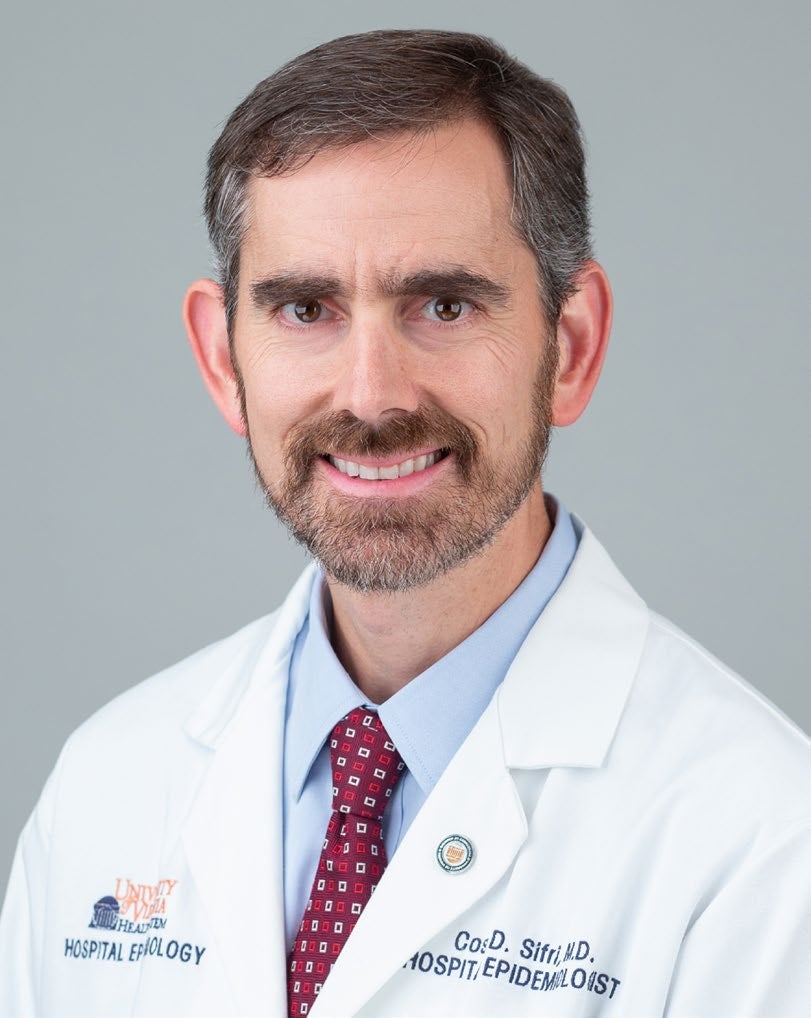 Dr. Costi Sifri talks with Richmond NPR affiliate VPM about measles. Two doses of the measles, mumps and rubella vaccine provide lifetime protection, but unvaccinated people
Dr. Costi Sifri talks with Richmond NPR affiliate VPM about measles. Two doses of the measles, mumps and rubella vaccine provide lifetime protection, but unvaccinated people
— and infants who are too young to be vaccinated — are very susceptible to infection. “Unfortunately, these circumstances are certainly a pressure test on some preparedness
planning, and we’re rolling out and developing more resources for our frontline clinicians to be able to respond to this so we do have a
measles control plan,” said Dr. Sifri.
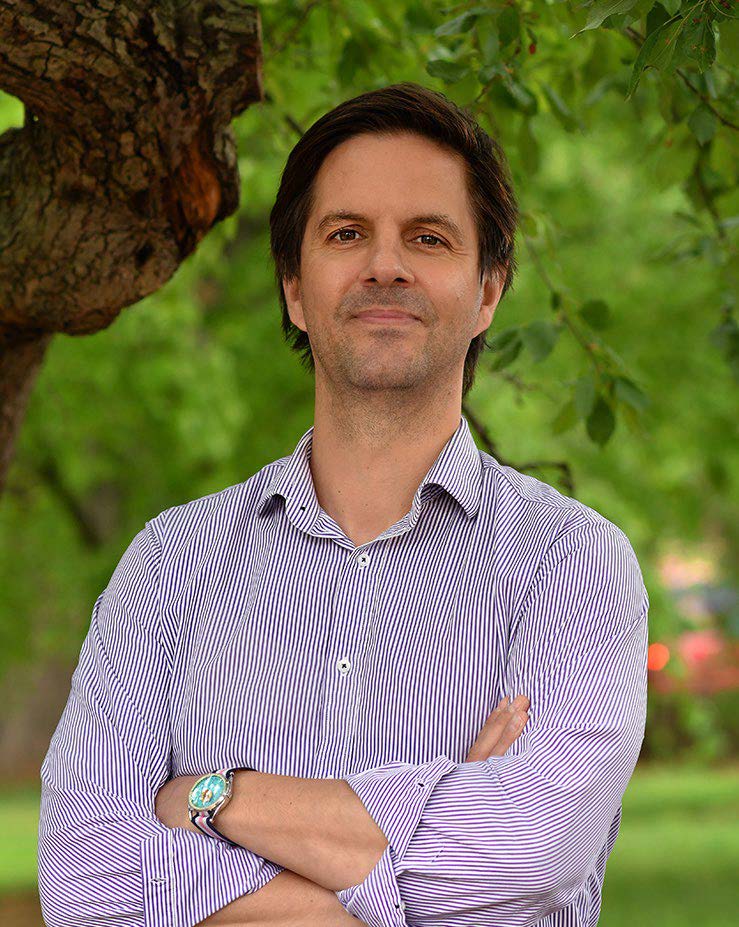 Dr. Josh Colston’s research into housing quality and disease prevention is featured in the
Dr. Josh Colston’s research into housing quality and disease prevention is featured in the
University of Virginia magazine. By identifying risk factors for disease clusters, public health
professionals can better pinpoint the potential presence of a disease. “You can then target it for some kind of intervention,” said Dr. Colston.
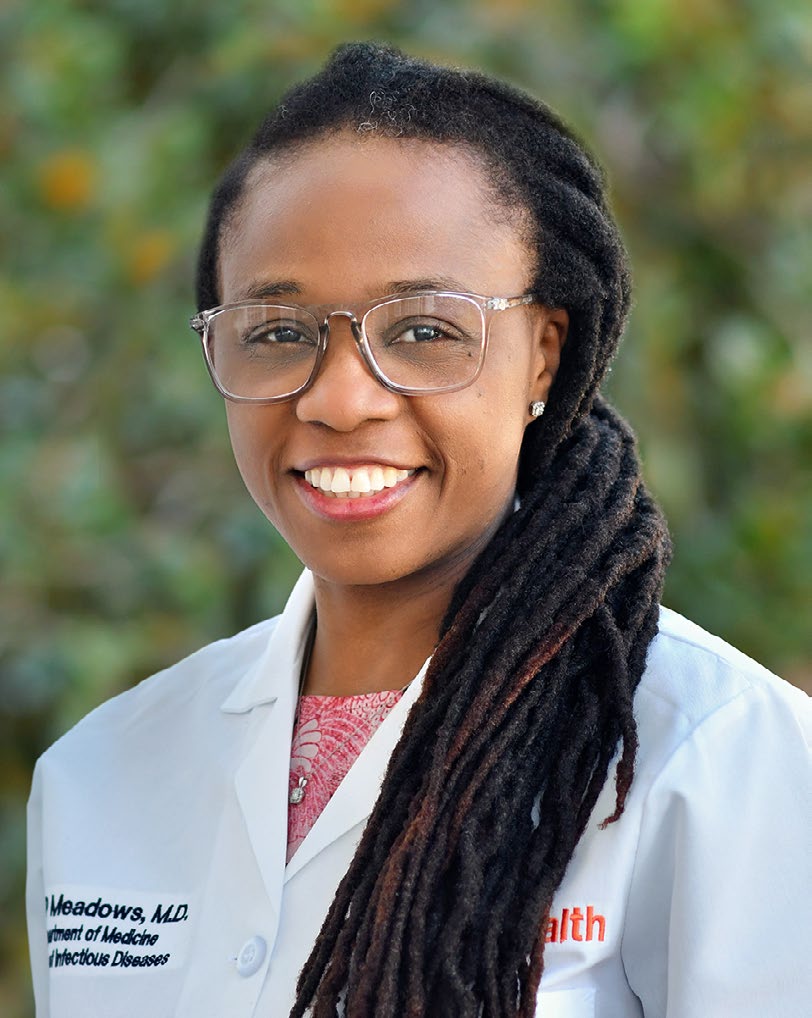 Idu Meadows, MD, a 2nd-year Infectious Diseases fellow, collaborated with researchers at Kibong’oto Infectious Diseases Hospital in Tanzania’s Kilimanjaro to investigate disability following tuberculosis treatment. More than 9
Idu Meadows, MD, a 2nd-year Infectious Diseases fellow, collaborated with researchers at Kibong’oto Infectious Diseases Hospital in Tanzania’s Kilimanjaro to investigate disability following tuberculosis treatment. More than 9
million people survive tuberculosis every year, but the majority suffer some form of disability. Dr. Meadows and her collaborators found among adults with respiratory symptoms after TB cure, a TB-survivor-led therapy program improved walking distance, the first of its kind.
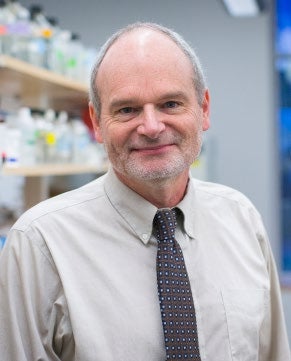 The University of Virginia magazine talks with Dr. Edward Egelman, Dr. William Petri, Dr. William Knaus, Dr. Mariano Garcia-Blanco, and Dr. Audrey Brown about the impact of federal research funding uncertainty.
The University of Virginia magazine talks with Dr. Edward Egelman, Dr. William Petri, Dr. William Knaus, Dr. Mariano Garcia-Blanco, and Dr. Audrey Brown about the impact of federal research funding uncertainty.
“There are breakthroughs that happen literally every week in biomedical research in the U.S.,”
said William Petri (Grad ’80, Med ’82), vice chair for research at the Department of Medicine. “It’s one of the things where we lead the world.”

